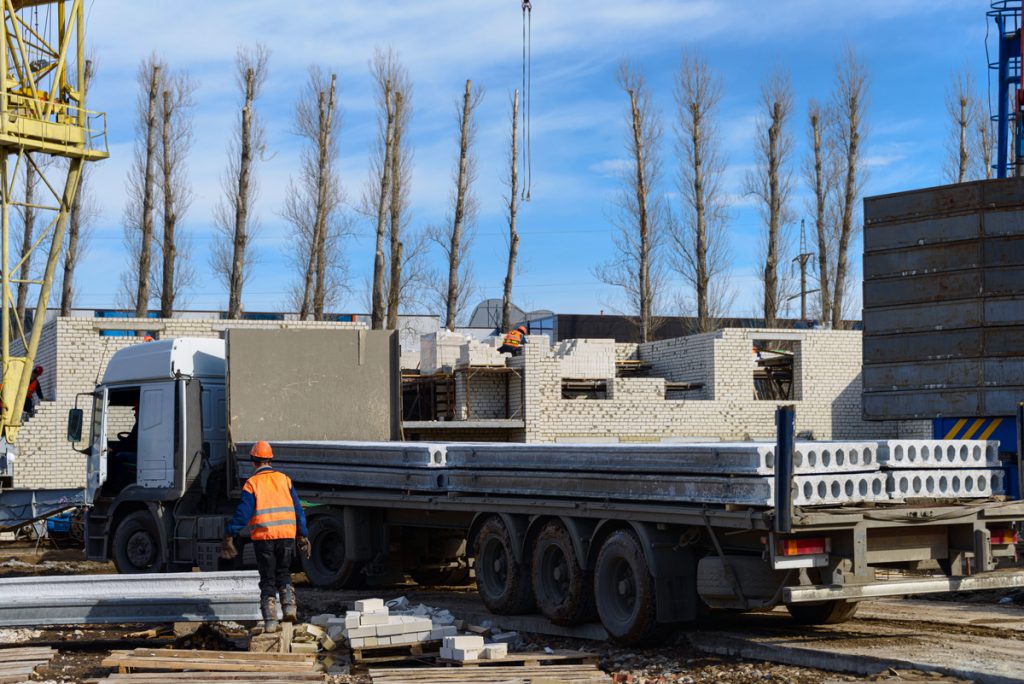
Warehouse Management Solutions In Construction
Efficiency is paramount in the construction industry, where time and resources are often in high demand. One area that can greatly benefit from improved efficiency is warehouse management. Warehouse management solutions have evolved to become essential tools for contractors, project managers, and construction companies aiming to optimise their operations.
This article will explore the significance of warehouse management solutions in construction, their key components, benefits, and how they can revolutionise the way construction projects are executed.
The Importance Of Warehouse Management In Construction
First and foremost, warehouse management plays a big role in ensuring that construction projects stay on track by providing a steady supply of materials and equipment. Without efficient warehouse management, delays, cost overruns, and project disruptions can occur due to shortages, mismanagement of resources, and inefficient processes.
Warehouse management solutions offer construction professionals the tools to streamline operations, enhance project performance, and boost profitability through technology and best practices. To fully capitalise on these benefits, it’s essential to understand the significance of how to start a construction company and incorporate efficient warehouse management practices from the outset.
Key Components Of Warehouse Management Solutions
Warehouse management solutions comprise essential components for efficient construction operations.
- Inventory Management: Construction companies must maintain accurate records of all materials and equipment in their inventory, including quantities, locations, and status. Modern warehouse management solutions utilise barcoding, RFID (radio-frequency identification), and advanced tracking systems to monitor inventory in real-time.
- Demand Forecasting: Predicting the demand for materials and equipment is essential to prevent shortages or overstocking. Warehouse management solutions often include tools that analyse historical data and project requirements to generate accurate demand forecasts. This helps construction companies plan their procurement and inventory replenishment more effectively.
- Supplier Management: Warehouse management solutions can integrate supplier data and automate order placement and tracking, reducing manual tasks and ensuring timely deliveries.
- Space Optimisation: Warehouse management solutions assist in optimising warehouse layouts, utilising vertical space, and ensuring that materials are stored in the most accessible and organised manner.
- Workforce Management: Coordinating warehouse staff and tasks is simplified with the inclusion of workforce management features. These enable efficient scheduling, task assignments, and performance monitoring, contributing to overall productivity.
- Reporting and Analytics: Data is a valuable asset in construction management. Warehouse management solutions offer robust reporting and analytics tools that provide insights into inventory turnover, order accuracy, supplier performance, and overall warehouse efficiency. This data empowers construction professionals to make informed decisions.
You see, these components help in resource management and process optimisation.
Benefits Of Warehouse Management Solutions In Construction
Warehouse management solutions bring numerous advantages to the construction industry.
- Improved Efficiency: Streamlined processes, precise inventory management, and optimised workflows lead to faster project completion and reduced costs.
- Cost Reduction: Efficient inventory control minimises the need for excess stock, freeing up capital. Automation and resource management also reduce labour costs and minimise the risk of stockouts or overstocking, resulting in cost savings.
- Enhanced Visibility: These solutions provide real-time visibility into inventory levels, order status, and warehouse operations. Project managers can make informed decisions and respond swiftly to changing requirements or unexpected issues.
- Reduced Errors: Automation reduces the likelihood of errors in order processing, stock counts, and data entry, ensuring smoother operations.
- Better Compliance: Warehouse management solutions include compliance features for tracking material expiration dates and ensuring proper storage conditions, helping construction companies meet regulatory requirements.
- Scalability: Adaptable to project size and complexity, these solutions accommodate various construction needs, from small renovations to large-scale endeavours.
- Enhanced Customer Satisfaction: Timely material and equipment availability contribute to project success, ultimately enhancing client satisfaction.
Without a doubt, warehouse management solutions are essential for achieving overall project success in the construction industry.

House construction. Photos of high-rise construction cranes and an unfinished house against a blue sky. A worker goes to unload a truck that brought construction materials to the construction site.
Case Studies: Real-World Applications
To illustrate the tangible benefits of warehouse management solutions in construction, look at two real-world case studies:
Case Study 1: Construction Company A
Construction Company A, a mid-sized firm, struggled with project delays and cost overruns due to inefficient warehouse management. They implemented a warehouse management solution, including advanced inventory tracking, demand forecasting, and supplier integration.
Within six months of implementation, Construction Company A experienced a 20% reduction in project delays, resulting in increased client satisfaction. Their overall project costs decreased by 15% due to better inventory control and reduced waste. The solution paid for itself within the first year, and Construction Company A continued to see significant cost savings and improved project performance.
Case Study 2: Construction Company B
Construction Company B, a construction conglomerate, simultaneously faced challenges in coordinating materials and equipment across multiple projects. They adopted a comprehensive warehouse management solution with scalable features.
This solution allowed Construction Company B to allocate resources efficiently, optimise project inventory, and reduce storage costs. As a result, they achieved a 30% increase in overall project throughput without a corresponding increase in operating costs. The company also improved client satisfaction by consistently delivering projects on time and within budget.
Selecting The Right Warehouse Management Solution For Construction
Choosing the appropriate warehouse management solutions for your construction projects requires careful consideration. Here are key factors to keep in mind:
- Project Scale And Complexity: Match the solution to your project’s size and complexity.
- Integration: Ensure seamless integration with existing systems.
- Scalability: Opt for a solution that can grow with your business.
- User-Friendly Interface: Prioritise ease of use and quick adoption.
- Mobile Accessibility: Ensure on-site access to real-time data.
- Customisation: Choose a solution that can be tailored to your workflows.
- Reporting And Analytics: Look for robust reporting for data-driven decisions.
- Compliance: Check for features that assist with industry regulations.
- Support And Training: Assess available customer support and training.
- Total Cost Of Ownership: Consider all costs, including upgrades.
- Vendor Reputation: Research the vendor’s track record and reviews.
- Trial Period: Take advantage of trial periods or demonstrations.
By carefully evaluating these factors, you can make an informed choice that enhances the efficiency and success of your construction projects.
Wrap Up
Warehouse management solutions have become indispensable tools in the construction industry, offering many benefits. By implementing them, construction companies can revolutionise their operations, streamline projects, and gain a competitive edge in a highly demanding industry. With the continued evolution of technology and the growing importance of efficient warehouse management, the construction industry is poised for further innovation and improved project outcomes.

With such importance placed on the success of warehousing within a business, at the Institute of Supply Chain Management (IoSCM), we offer a range of professional qualifications, carefully designed to match modern business’ needs and upskill professionals at all stages of their warehousing careers.
Unlike many other training providers, we offer the flexibility to tailor your course to your learning style, career goals and current workload. By doing this, you can ensure you get the most benefit from your studies. To find out more, call us on 0800 1422 522.
